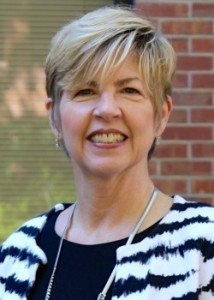UF center partners with states’ school system chiefs to boost teaching of students with disabilities
GAINESVILLE, Fla. — Stronger licensure standards for teachers and principals, identification of skills educators need from their first day in the classroom, and more rigorous preparation programs for teachers and school leaders are among the steps state education chiefs can take to meet the needs of all students, especially those with disabilities, according to a new report issued jointly by a center for educator preparation reform at the University of Florida and the Council of Chief State School Officers.

Mary Brownell
The recommendations are the result of a partnership between UF’s Collaboration for Effective Educator Development, Accountability and Reform, or CEEDAR Center, and the private, nonprofit professional organization that serves leaders of every state’s department of elementary and secondary education.
The two groups recently convened an advisory group of state education agency leaders, higher education faculty, national professional organizations and teachers to develop the guidelines, released in a report “Promises to Keep: Transforming Educator Preparation to Better Serve a Diverse Range of Learners.”
The Council of Chief State School Officers is distributing the report to all state education department leaders and national organizations that serve individuals and organizations invested in teacher and principal preparation.
Other recommendations outlined in the report include:
· Making personalized learning and student achievement and outcomes, including those for students with disabilities, an integral part of preparation and evaluation programs for teachers and school leaders in training
· Designing preparation programs that promote collaboration and teamwork among all educators for all of their students
· Maintaining effective monitoring and evaluation systems that hold teacher preparation programs accountable and providing the programs with adequate feedback for continued improvement in how they prepare teacher and administrator candidates to support diverse learners in the classroom
The report, which outlines a comprehensive set of clear policy actions state agencies can take, is the first of its kind, said CEEDAR Center director Mary Brownell.
“Students with disabilities can make remarkable progress when their teachers have the knowledge and skills needed to serve them effectively,” said Brownell, a special education professor at UF’s College of Education. “Improving preparation of all future teachers and school leaders is one way to ensure they have the knowledge and skills needed to help a diverse range of students.”
The report builds on a well-publicized policy document the Council of Chief State School Officers published in 2012 that included recommendations for transforming teacher and leader preparation policies.
“State education chiefs want effective teachers in the classroom on Day 1,” said Chris Minnich, the council’s executive director. “It is essential that schools continually seek the most effective ways to reach their most diverse learners.”
UF’s CEEDAR Center, with assistance from a federal grant, is partnering with the council to implement many of the guidelines in 15 states. The hope is that state education departments, colleges of education and school districts will work together to incorporate the recommendations into efforts already underway to improve teacher quality and leader preparation, Brownell said.
CEEDAR Center is in the midst of a five-year, $25 million technical assistance project to help the 15 participating states strengthen their standards and methods for preparing, licensing and evaluating teachers and school leaders. Funded by the U.S. Department of Education’s Office of Special Education Programs, the center began its work in Florida and four other states – California, Connecticut, Illinois and South Dakota – in 2013. Five additional states are expected to join the project in 2016, with the “Promises to Keep” report guiding much of the work in these states.
The report is available at http://ceedar.education.ufl.edu/portfolio/promises-to-keep/ or www.ccsso.org.
Sources:
Mary Brownell, project director, UF CEEDAR Center; 352-273-4529; mbrownell@coe.ufl.edu
Larry Lansford, UF College of Education News & Communications, 352-273-4449; skindland@coe.ufl.edu
University of Florida News Center http://www.news.ufl.edu | News@ufl.edu | 352-846-3903
******************************
The University of Florida is one of the nation’s largest public universities. A member of the Association of American Universities, UF posted research expenditures totaling $696 million in 2013. Through its research and other activities, UF contributes more than $8.76 billion a year to Florida’s economy and has a total employment impact of more than 100,000 jobs statewide. Find us at www.ufl.edu, on YouTube at www.youtube.com/UniversityofFlorida, and learn about UF’s plan to become one of the nation’s top public research universities at ufpreeminence.org.




